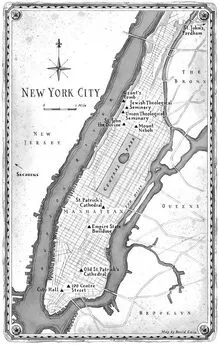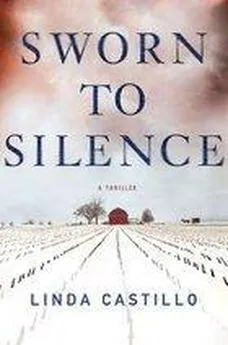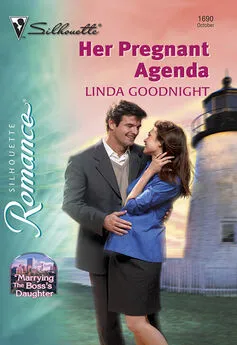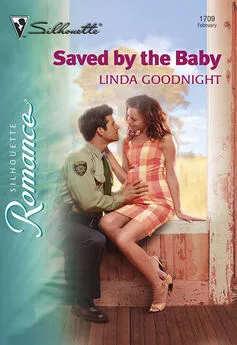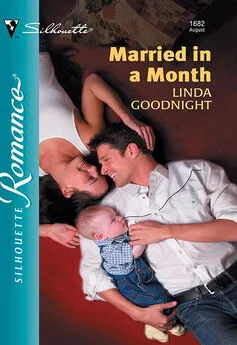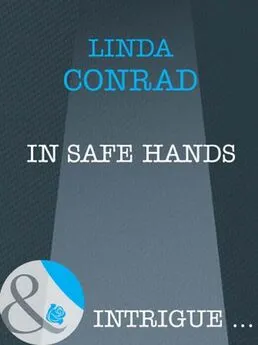Fairstein, Linda - Silent Mercy
- Название:Silent Mercy
- Автор:
- Жанр:
- Издательство:неизвестно
- Год:2011
- ISBN:нет данных
- Рейтинг:
- Избранное:Добавить в избранное
-
Отзывы:
-
Ваша оценка:
Fairstein, Linda - Silent Mercy краткое содержание
Silent Mercy - читать онлайн бесплатно полную версию (весь текст целиком)
Интервал:
Закладка:
Battaglia flattened the newspaper on his desk. “For all his bullshit, Chapman always comes up with the goods.”
No point correcting his conclusion. Mike needed the credit for occasions on which his outspoken manner and his gallows humor offended the district attorney. I nodded and smiled, explaining the history of the old church. “That’s why there may be significance to the victim’s religious affiliation.”
“You ever think about running for this job, Alex, remember what I tell you. There are three hundred seventy-one Catholic churches in the Archdiocese of New York. I’ve worshipped at one of them all my life, so I’ve got to attend. The rest are part of the must-do stops in every campaign. God knows how many Baptist and Protestant churches — the Separatists, as my mother called them all her life, even though they separated from Rome four hundred years ago.”
He laughed at his own remark. He often did.
“Ten minutes apiece on Sunday morning for every primary race, till the sermons come out your ears,” Battaglia went on. “Then Friday night or Saturday morning for the seventy-seven synagogues on this island. Shecky Feinberg contributes to your race? You’ve got to show up at his kid’s bar mitzvah — and that’s before you do the O’Donnell christening. Cold little piggies in soggy blankets and more rubber chickens than you can count. The one sure place you don’t want to find bodies is a house of worship. Got that? This one will cost me a month of Sundays at Mount Neboh.”
“Got it.” The campaign poster that hung in my office had Battaglia’s head shot over one of his favorite slogans: You Can’t Play Politics with People’s Lives.
“More likely you’ll come to your senses and settle down with your Frenchman and have a brood of little litigators who can also cook a mean omelet.”
“Now, that doesn’t sound very enlightened of you, Paul,” I said, wagging a finger at him.
“Be realistic. I got Sonia Sotomayor a seat on the Supreme Court, didn’t I? That kind of lightning won’t strike twice for my best staffers.”
He was in his late sixties and had been reelected five times, with no signs of slowing down.
“When you tell me you’re ready to step aside, I’ll have it figured out.”
I had my own unique piece of the criminal law in our Special Victims Unit, and loved everything about my ability to do advocacy for victims who’d been denied voices for so long. The political aspect of the DA’s job — trying to be all things to all voters — left me cold.
“Whatever you need, pull it together for this one. Don’t hesitate to ask for anything,” he said, reaching across his desk for the daily court calendar, the multipage roster that reported every trial case and disposition in the Supreme Court parts, where all the felony cases were argued. “How’s that Koslawski matter going? You’re doing a good job keeping it under the radar screen.”
“Flip to page five — you’ll see it there. We’re in front of Lyle Keets. I left an update memo with Rose before I went home last night. I just assumed you’d seen it.”
“Must be in this pile,” he said, twizzling the cigar butt between his lips as he looked for the memo.
“Barry Donner caught the case when it came in. He’s a good junior assistant, so I didn’t want to take it away from him. But once the defense waived a jury in front of Keets and we figured out there might be a surprise witness, I decided to second-seat Barry in the event he needed a hand.”
A second seat in the courtroom — literally an extra chair at counsel table — was usually occupied by the less-experienced lawyers who were assigned grunt work for the bigger guns. In our office, they wheeled the evidence cart of exhibits to and from the trial, put on witnesses of lesser importance, and made routine notifications to get cops and civilians to court at the proper day and hour, often haggling with police bosses about bringing essential players in on overtime.
This time we turned the tables on the tabloids. The defendant — a private-school teacher charged with molesting a fourteen-year-old student — had no name recognition to attract media attention, and by listing Barry Donner as the lead prosecutor, the crew in the press room failed to attach any high-profile connection to the case.
“I made a lot of promises there’d be no grandstanding on this one, Alex.”
“Promises to?…”
Battaglia ignored my question. “No grandstanding. I made that clear to you.”
I could see the memo I’d dashed off the previous evening about what was going to happen today at the Koslawski trial on top of the in-box file. Of course the district attorney had read it first thing this morning. It was the real reason I’d been summoned, to be given an extra admonition. Of course Battaglia was talking directly to Cardinal McCarron about the trial.
“It’s not my fault that Koslawski’s lawyer decided to call Bishop Deegan as a character witness, Paul. The bishop testified on direct yesterday afternoon, and it was as plain vanilla and coddling of the defendant as you would think. It was nonsense.” Dishonest is what I wanted to call it, but that would be pushing the district attorney too far. “Enright’s just trying to appeal to the court’s old-fashioned sense of religious propriety, but I think her plan is about to backfire.”
Denys Koslawski, now a private-school teacher, was a defrocked priest.
Barry Donner had done a tremendous job securing records from the archdiocese in which Koslawski had served as a much younger man. Now we needed to get the evidence of his prior uncharged crimes — swept under the church carpet at the time — into the record.
“Watch whose feet you step on.”
“I’m not looking to embarrass anyone here.” It wasn’t the moment to remind Battaglia of his other favorite campaign slogan — that justice would be done in his office without fear and without favor. “You can’t give this perp another pass.”
“I’m not suggesting anything like that, Alex. But there’s no need for you to play Torquemada in this either. Young Mr. Donner can probably do fine on his own.”
“I’ll pass along your vote of confidence to him, Boss, and remind you of it when it comes time to evaluate the staff for raises. Is that it?” I asked. “’Cause I’d better get up to the courtroom.”
“Chapman didn’t see any connection, did he?”
“Connection to what?” I stopped. “Rose has Mike’s number, Paul. Feel free to call and ask him whatever it is you want to know.”
“Any link between a murder victim deposited on the church steps and the fact that you’re on trial at this very moment, going after a priest. The timing of that is tricky, don’t you think?”
“A fallen priest, thrown out of his position because he couldn’t keep his hands off teenage boys, and a decapitated woman — probably Jewish—”
“Like you. Could be a message in that.”
“A decapitated woman who was tortured and dismembered? Left on the steps of a Baptist church? None of us saw a connection to Denys Koslawski, Boss. Maybe if she’d been dumped on the doorstep at St. Patrick’s Cathedral, I’d think differently.”
“Don’t be facetious, Alexandra.”
“Well, please don’t look for trouble where there isn’t any.”
“I’d hate to think you brought on a tragedy of this magnitude when a slap on the hand would have sufficed as punishment for Koslawski.”
“You think something that I did brought on this murder? You can’t be serious, Paul.” Maybe if Koslawki’s hand had been slapped enough times to leave some bruises, I stopped short of saying, it would have kept him from reaching for the zippers of the vulnerable young men who looked to the church for spiritual guidance.
“I think Cardinal McCarron was simply worried on your behalf. I expressed that poorly.”
“Thank the cardinal for his concern, Paul. Hope you can both keep the faith.”
SEVEN
“THEboss said that to you?” Donner asked. He’d overheard my short conversation with Mercer before the elevator doors closed to take us up to Part 67 of the Supreme Court, Criminal Term, of the state of New York, on the fifteenth floor of the monolithic and dreadfully outdated WPA-designed courthouse.
“Why? Can you see steam coming out of my nose and ears? Blood oath, Barry — you never heard what I said about Battaglia or the cardinal. I just needed to vent to a friend so I can calm down and focus on what we’ve got to do today.”
“I didn’t think I’d be making enemies in this job.”
“Nothing to get paranoid about. You won’t. This is a tough issue for Battaglia. He’s one of the city’s most visible Catholics in public office, and the church has been notoriously ineffective in acknowledging the problem of sexual abuse in its ranks.”
“Have you prosecuted other priests?” Donner asked as the doors opened and we made our way past paroled perps and bedraggled relatives waiting for short visits with imprisoned sons and husbands and brothers whose cases were also on the court calendars.
“I was a rookie when I handled my first complaint, a dozen years ago. A Dominican woman from Inwood had an eleven-year-old kid. The local parish priest took an interest in him when he started struggling in school.”
“That must happen all the time.”
“It does. So Mrs. Caceres was fine with it. In fact, she thought it was the best of all possible worlds. Father Leopold offered to tutor the boy in his apartment the evenings that Mrs. Caceres was working late. She was saying more novenas for Leopold’s well-being than anyone on the planet. What better? In a neighborhood where gangs roughed up or recruited all the kids, this boy had a guardian angel keeping him off the streets.”
“Till the kid complained?” Barry asked.
“He couldn’t bring himself to tell his mother, which is common with most adolescents. He just became very withdrawn and wanted to stop going to see Father Leopold. His mother insisted otherwise, telling him he’d better cooperate and do everything the priest wanted him to do. Everything. Listen to him, she kept insisting, and obey him. No disrespect.”
“And he did, right?”
“Yes, he did. For several weeks, until he had a breakdown in school, after Leopold had moved from touching the boy to sodomizing him. It was a doctor at Columbia-Presbyterian who notified child welfare and the police. That’s how I got the case.”
“Did you have Leopold arrested?”
The court officer unlocked the door and let us into the empty courtroom. We walked down the aisle and I pushed the gate that admitted us to the well, taking our assigned table closest to the jury box.
“It was my rude awakening to how the church operated. At the first whiff of a complaint, the priests were moved to another archdiocese. Another state, thousands of miles away. Beyond the subpoena power of the state of New York. Leopold had come from some town in Wisconsin, where he’d run the youth group. Before the ink on the Caceres complaint was dry, he was relocated to a really poor parish south of Austin, Texas. The church leaders just shuffled their problems around, hoping no one would notice.”
“But you’re usually a pit bull about this stuff, Alex. Didn’t you go after Leopold? Didn’t you bring the boy in?”
“Once. I had one shot at an interview with a painfully shy adolescent who would rather have had a root canal than talk to me about Leopold’s sexual advances. I had a whole plan for gaining his trust over time and building the case. But the church lawyers moved faster than I did. They offered Mrs. Caceres a settlement she couldn’t refuse.”
Читать дальшеИнтервал:
Закладка:
